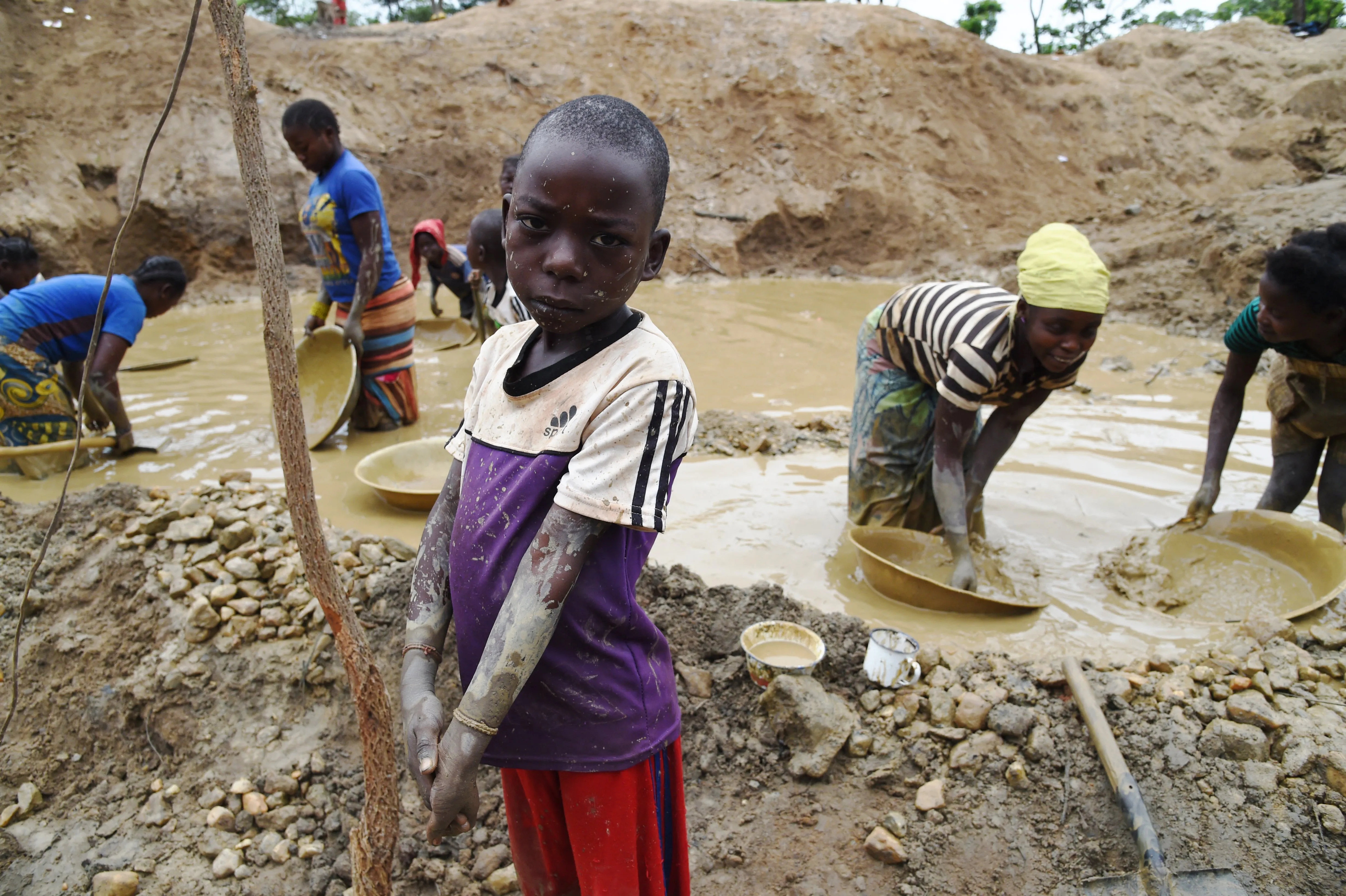Across Africa, millions of children continue to work in dangerous and dirty jobs that keep them out of education and stunt their mental and physical development.
Despite Africa’s improvement on many development metrics, progress on ending the scourge of child labour in sub-Saharan Africa has proven elusive. There are now more children in child labour in the region than in the rest of the world combined, according to the ILO.
Sub-Saharan Africa has seen an increase in both the number and percentage of children in child labour since 2012, according to its global Child Labour report for 2020. 23.9% of children aged 5-17 on the continent – a staggering 86.6m – are estimated to be put to work, a decrease of just 1.4% from 2008 and a worrying increase of 1.5% from 2016.
That could rise to 90m by 2030 without action, with population growth across the continent continuing to offset GDP gains and the pandemic likely to worsen the impact.
Child labour remains overwhelming rural and domestic – in sub-Saharan Africa, agriculture accounts for over four out of every five children in child labour, while 82% of all child labour in the region occurs within the family.
For many poor rural families throughout the continent, there is a generations-old expectation that children will work to keep the family out of destitution. But hazards include exposure to fertilisers, pesticides and agrochemicals; physically strenuous tasks, repetitive and forceful movements in awkward body positions; exposure to extreme temperatures; and the use of dangerous tools and machinery.
Critically, children are also kept away from the classroom – 28% of working children in sub-Saharan Africa do not attend school at all, a blow to their best chance of avoiding the generational poverty trap.
Malawi urged to turn over new leaf amid tobacco lawsuit
Tentative progress
There has been some progress. In 2020, all member states of the ILO ratified the Worst Forms of Child Labour Convention, which offers legal protection against the worst forms of exploitation.
In recent months, the ILO has been working with states on implementing the convention – Mauritania, which has an estimated 24,516 children aged 5 to 17 in work, recently decreed a law listing 42 dangerous jobs prohibited to children.
Other practical methods are recommended by the ILO, including expanded income support measures for families in situations of vulnerability, increased remedial learning for child workers and policies to register every child birth.
Economic development rooted in the modernisation of the agricultural sector in Africa – the long-promised “Green Revolution” – will play a critical role in bringing children out of the workforce.
International businesses, many coming under pressure from consumers, also have a role to play in crafting innovative solutions and amending their practices.
In January, Nestlé announced that it will pay its cocoa farmers up to 500 Swiss francs ($536) a year by mobile transfer if they send their children to school rather than tend crops. The payments, which are equivalent to 20-25% of a farmer’s average yearly income, will be levelled at 250 Swiss francs after two years. The company hopes to include all of its 160,000 cocoa farmers in the scheme by 2030.
Similar schemes could be rolled out across Africa’s corporate landscape. The challenge is huge, but with Africa’s future in the hands of its children as populations continue to grow, there is no excuse for inaction.
Want to continue reading? Subscribe today.
You've read all your free articles for this month! Subscribe now to enjoy full access to our content.
Digital Monthly
£8.00 / month
Receive full unlimited access to our articles, opinions, podcasts and more.
Digital Yearly
£70.00 / year
Our best value offer - save £26 and gain access to all of our digital content for an entire year!
 Sign in with Google
Sign in with Google 



